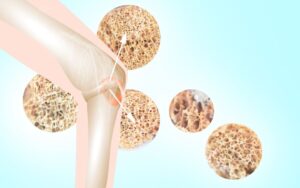The Sunshine Vitamin
In today’s fast-paced world, where stress is high and time for self-care seems scarce, exploring simple ways to nurture our bodies and minds is crucial. Enter Vitamin D – often hailed as the ‘sunshine vitamin,’ this essential nutrient is critical to unlocking many health benefits beyond bone strength. But what happens when we can’t reap the benefits of sunshine daily? Read on to learn about all the transformative benefits of Vitamin D, how much your body needs, signs you may be deficient, and the best ways to seek it out.
Understanding Vitamin D
What Is It?
Vitamin D is a fat-soluble nutrient that plays a crucial role within the body. While it has several forms, the most important are Vitamin D2 and Vitamin D3.
- D2 is mainly obtained from plant sources, such as fortified foods and supplements.
- D3 is synthesized in the skin when exposed to sunlight. It is also found in some animal-based foods.
Both forms must be converted in the liver and kidneys to become active.
Sources of Vitamin D
There are three ways to get Vitamin D: exposure to the sun, certain foods, and dietary supplements. The primary source of Vitamin D is sunlight exposure. While it’s hard to say exactly how much sun exposure each of us needs, even a little can be beneficial. When ultraviolet B (UVB) rays from the sun strike the skin, they create the synthesis of Vitamin D3. However, nutrition also contributes significantly to Vitamin D intake. Foods rich in Vitamin D (more on that later) can be beneficial when other sources are sparse.
The Sunshine Vitamin: Benefits Beyond the Physical

Bone Health: Vitamin D works with calcium to maintain bone density and strength at all ages. It regulates the absorption of calcium and phosphorus in the intestines, crucial minerals for bone mineralization and skeletal health. In children, a Vitamin D deficiency is directly related to the bone disease rickets, in which bone tissue fails to become properly mineralized. For older adults, it aids in preventing bone diseases such as osteoporosis and can prevent weak bones and falls.
Immune Function: Vitamin D regulates the immune system and helps fight bacteria and viruses. It has been linked to a reduced risk of infections and inflammatory conditions. Tests have also shown consistent Vitamin D intake can reduce cancer cell growth.
Mental Health and Mood Regulation: Emerging research suggests a potential link between Vitamin D levels and mood regulation. Adequate Vitamin D levels have been associated with lower rates of depression and improved mood. It’s no surprise that depression seems to skyrocket in the colder months when sunlight is infrequent and we are more apt to stay indoors.
Cardiovascular Health: Adequate Vitamin D levels improve heart health and are important for healthy blood vessels and blood pressure.
Vitamin D Deficiencies
Deficiencies in Vitamin D are not always obvious. They can present themselves in a number of different ways and can have a big impact on quality of life. Experiencing symptoms like fatigue, muscle weakness, spasms, tingly sensations, or bone pain can be the first signs of a deficiency. Since vitamin D is crucial in calcium absorption, bone health issues such as fractures or osteoporosis might also suggest a deficiency. Doctors don’t typically check for Vitamin D deficiencies, so it can quickly go unnoticed.
Optimizing Your Levels
Knowing that Vitamin D is essential, how can we ensure we get enough? It’s not always as simple as sitting in the sun every day. Everyone is different; some individuals absorb Vitamin D more effectively than others. These are some of the factors to consider that can impact Vitamin D levels:
- weather
- seasons
- time of day
- geographic location
- clothing
- skincare products
- skin pigment
- age
- autoimmune diseases
- medications
- and more
The most important thing is to find a balance that works. We can control challenges, such as our skincare routine, exercising consistently, managing stress, and even being intentional about seeking sun exposure at peak times each day.
However, there are challenges, too, that we cannot change. We can’t control the weather or seasonal changes, and we certainly can’t control our age. Thankfully, there are other ways to increase Vitamin D without going outdoors.
Nutrition
Foods rich in Vitamin D can help when sunlight exposure is minimal. Certain fatty fish, such as salmon, tuna, sardines, and liver oil, are a great option. Egg yolks, beef liver, and foods specially fortified with Vitamin D (milk, cereals, orange juice) are also ideal. Some wild mushrooms are known to have higher levels of Vitamin D, and some commercially sold mushrooms also have higher levels due to their UV light exposure.
Supplementation:
There are several reasons why you may not be getting enough Vitamin D. Whatever the cause, dietary supplementation might be a great way to ensure adequate levels. Vitamin D can be found in a daily multivitamin or as a standalone supplement. Purchasing from a reputable distributor is important to provide the highest quality when shopping for supplements. Talk with your healthcare practitioner about the proper dosage and which form of Vitamin D is best.
Vitamin D Testing and Assessment Tools
While Vitamin D testing is not standard practice, it is becoming increasingly popular among healthcare professionals during routine bloodwork. Doctors will typically order this bloodwork test for a patient if there are complaints of bone or muscle pain or a history of bone disease. However, you can always request it if you suspect a deficiency. There are also many inexpensive at-home kits available too.
Knew Health Can Help

Disclaimer: This information is provided for educational and informational purposes only. It is being provided to educate you about how to take care of your body and as a self-help tool for your own use to reach your health goals. It is not intended to treat or cure any specific illness and is not to replace the guidance provided by your own medical practitioner. This information is to be used at your own risk based on your own judgment. If you suspect you have a medical problem, we urge you to take appropriate action by seeking medical attention.
Sources
“Vitamin D.” Harvard T.H Chan, 1 Mar. 2023, www.hsph.harvard.edu/nutritionsource/vitamin-d/.
“Vitamin D Deficiency.” Yale Medicine, www.yalemedicine.org/conditions/vitamin-d-deficiency.
“Vitamin D: Fact Sheet for Consumers.” NIH, 8 Nov. 2022, ods.od.nih.gov/factsheets/VitaminD-Consumer/.
“Vitamin D: Fact Sheet for Health Professionals.” NIH, 19 Sept. 2023, ods.od.nih.gov/factsheets/VitaminD-HealthProfessional/.













































